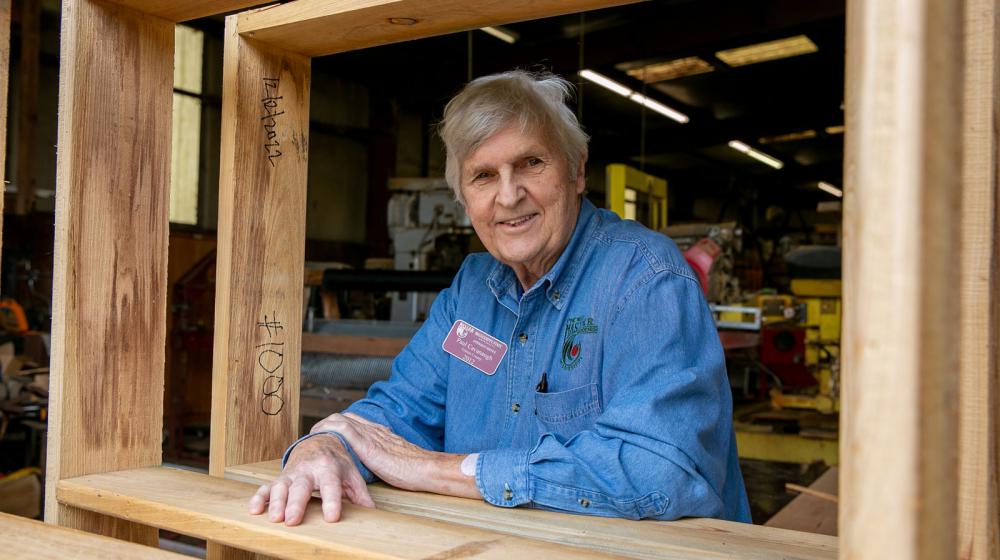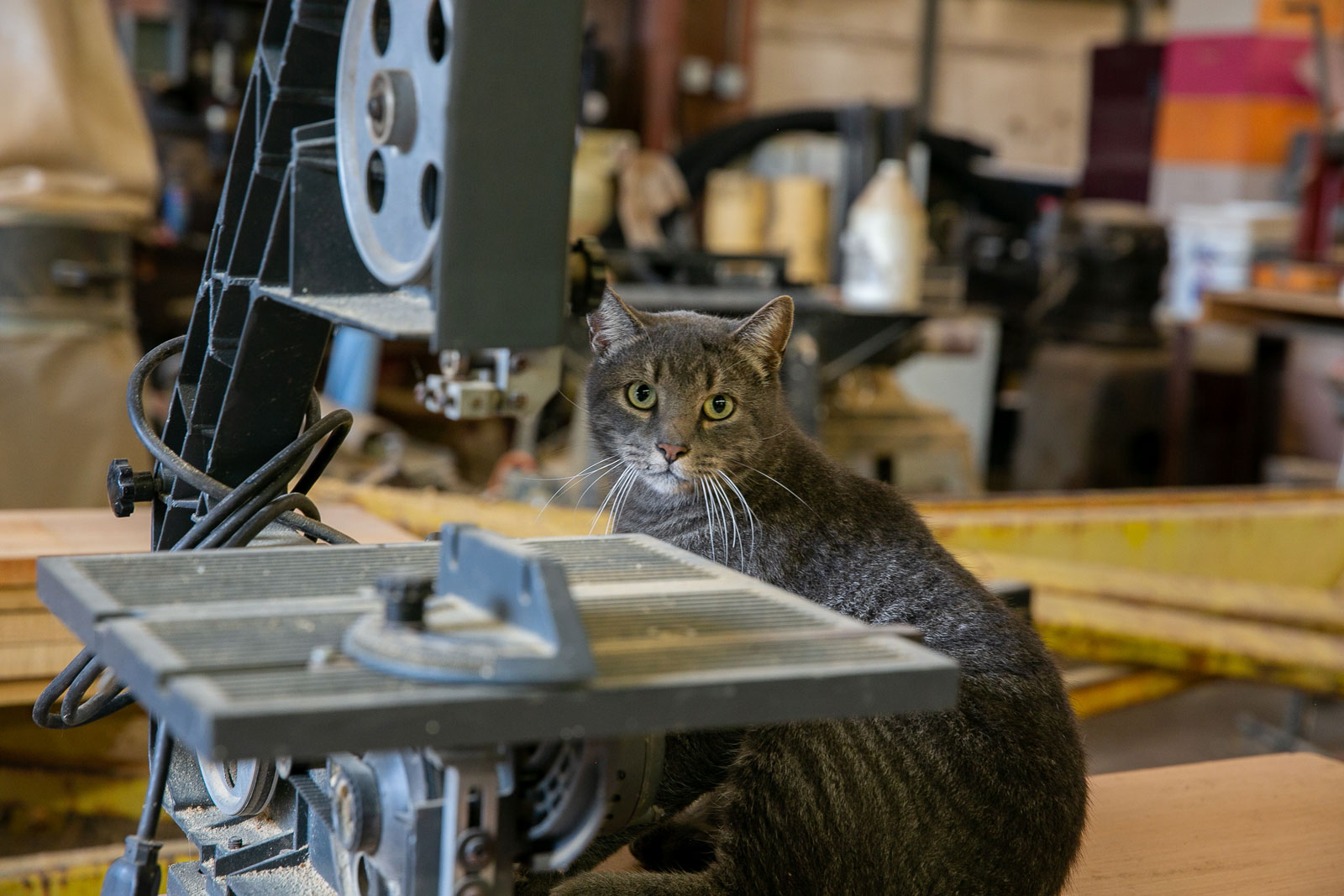Doing the “Heart” Work

Paul Cavanaugh, Pine Belt Master Gardener
Making a World of Difference
Service, enjoyment propel Cavanaugh’s salad tables
Story by Bonnie Coblentz • Photos by Michaela Parker
Reaching Thousands
1,000 Salad Tables
How to Make Salad Tables
Guarantee Salad Table Success
Who's Using Salad Tables
Paul Cavanaugh became a Master Gardener when he came off the road as a truck driver and his wife encouraged him to find a hobby.
Now 10 years and 1,000 salad tables later, Cavanaugh finds enjoyment and fulfillment in volunteer garden work and education.
Cavanaugh is a member of the Pine Belt Master Gardeners, a group of about 35 people who have received extensive horticulture training from the Mississippi State University Extension Service. In return, Master Gardener volunteers commit to serving a minimum of 20 hours of community service each year.
A salad table is a raised garden. It is made of cypress wood that resists rot and pests, and is filled with 6 to 8 inches of a quality potting mix. Salad tables stand 36 inches above the ground, so gardeners do not have to stoop down or kneel to work in the bed, and people who use wheelchairs can access them.
“We started making the tables because a lot of the people who liked to garden had knee injuries or knee replacements and could not kneel,” Cavanaugh says. “I’m a Navy veteran, and we knew there are veterans and people in nursing homes who enjoy gardening.
“Seeing something alive and growing makes a world of difference,” he says. “There is a positivity about it that they are taking care of things themselves rather than someone else taking care of them.”
Because the tables are 3 feet across, gardeners can easily reach all areas of the salad table to tend the plants.
Gardeners can grow cherry tomatoes, lettuce, onions, bell peppers, greens, squash, and even potatoes and peanuts in these salad tables. Gardeners must battle weeds, but there tend to be fewer insect pests in salad tables elevated above the ground.
The Pine Belt Master Gardeners sell some salad tables, and they use the proceeds of these sales to buy materials to make more tables, which they donate to deserving organizations. Some of the tables go to schools where students learn to plant seeds and tend to the growing plants.
“When the kids see the seeds they planted start to grow up, it is like magic to them,” Cavanaugh says.
In late December 2022, Cavanaugh helped build his local group’s 1,000th salad table. Salad tables that Cavanaugh helped build are scattered across the state, and some have been delivered as far away as Pennsylvania and Maryland.
Today, Cavanaugh continues to meet once a month with the local Master Gardener group to build more tables. They typically construct six to eight tables each month.



